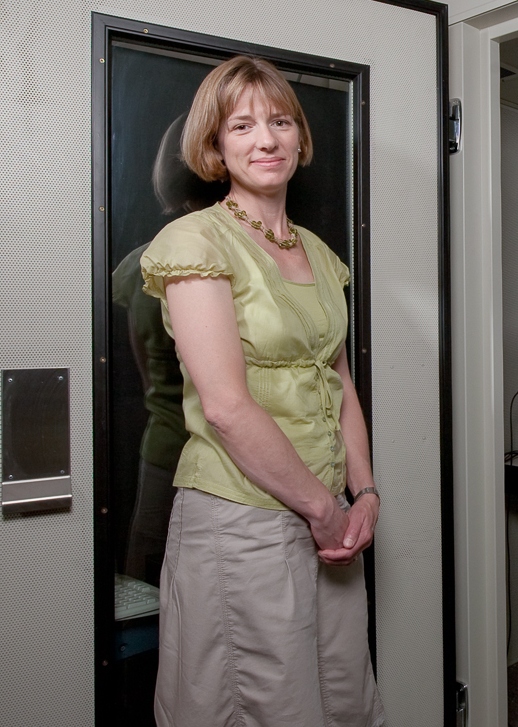Familiar voices help with hearing in a crowd
August 28, 2013
Share
By Anne Craig, Communications Officer
New research from Queen’s University shows people in a noisy room can use what they know about a familiar person’s voice to hear that voice better but are also able to ignore the familiar voice to hear an unfamiliar voice better.
Ingrid Johnsrude’s (Psychology) research also demonstrated the presence of a familiar voice in a mixture of voices actually influences how people organize that mix of voices.
 Ingrid Johnsrude.
Ingrid Johnsrude.Dr. Johnsrude studied 23 married couples between the ages of 44 and 79 that had been married for 18 years or more. Each participant in the study was asked to listen to two different talkers at the same time, and to report what one of them was saying. Sometimes one of the talkers was the person’s spouse, and the other was a stranger, and sometimes both talkers were strangers. Since all stranger voices were those of other participants’ spouses, matched in age and sex to the participant’s own spouse, acoustic factors like someone having a very distinctive voice cannot influence the results.
Participants were more accurate when they had to report what their spouse had said, compared to reporting an unfamiliar voice.
“The benefit of familiarity is very large,” Johnsrude commented. “It’s on the order of the benefit you see when trying to perceptually distinguish two sounds that come from different locations compared to sounds that come from the same location.”
Middle aged people (under about 60 years of age or so) also benefited from familiarity in another way: when they were asked to report a stranger’s voice, they did better when their spouse was the interfering voice, compared to when the interfering voice was that of another stranger. In other words, they could use what they knew about their spouse’s voice to ignore it, so as to hear a stranger’s voice better. In contrast, older individuals do not appear to benefit from having their spouse as the interfering voice.
Johnsrude and colleagues were interested in how reporting accuracy depended on the participants’ age and whether the voice to be reported was familiar or not. They observed that, whereas the ability to report an unfamiliar voice declined with age, the ability to report a spouses voice did not. This suggests older people can use what they know about a familiar voice to compensate for age-related changes that make it harder to hear speech masked by an interfering talker.
Dr. Johnsrude’s research was published in Psychological Science.